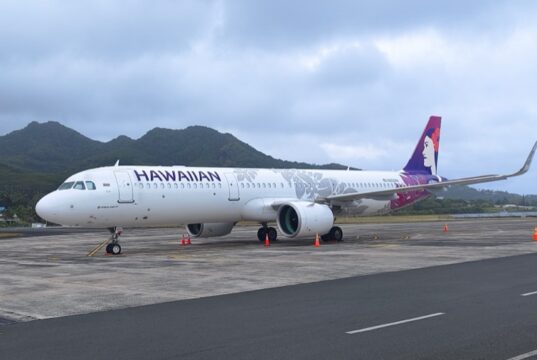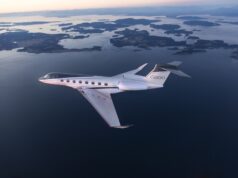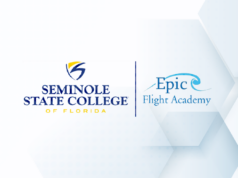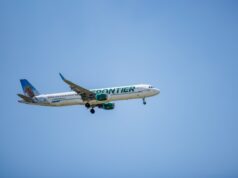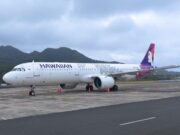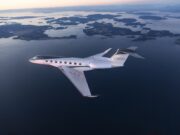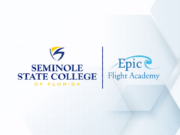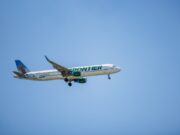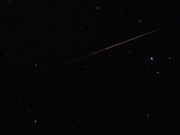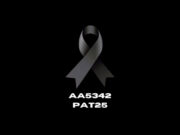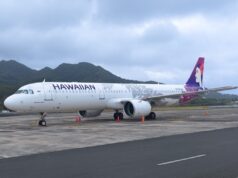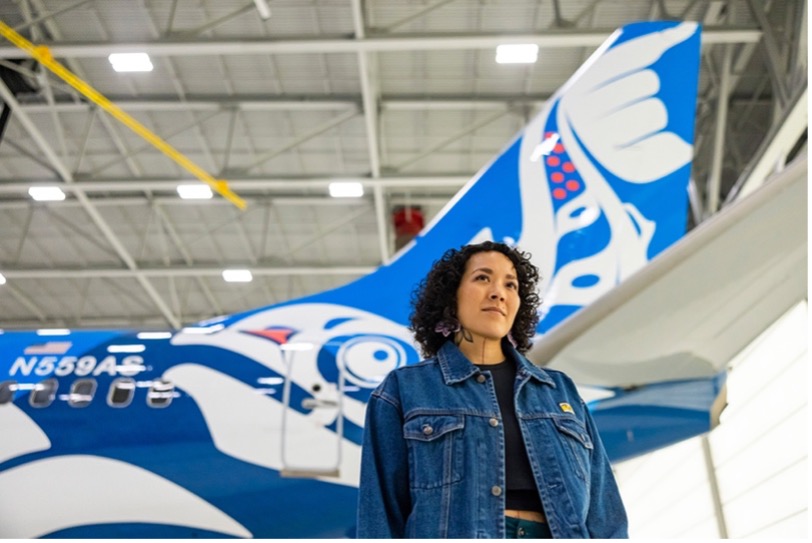
As a tribute to Xáat Kwáani (Salmon People), this special Alaska Airlines aircraft is the first of any domestic airline fleet to be named in an Alaska Native language and to depict the ancestral importance of salmon through Northwest Coast formline art.
Alaska Airlines unveiled its newest aircraft paint theme today – Xáat Kwáani – designed by the talented Alaska Native artist Crystal Kaakeeyáa Rose Demientieff Worl. Xáat Kwáani means “Salmon People” in the Alaskan Tlingit language and refers to the spiritual link between the people who interact with the beloved salmon and all of us who benefit from their stewardship of the environment.
Using Northwest Coast formline art, the salmon design by Worl is a one-of-a-kind work that honors salmon, culture, artistic expression, and language. Traditional formline art dates back thousands of years and is a two-dimensional design style of the Northwest Coast.
“Every time I looked at an Alaska plane, I couldn't help but visualize the salmon being in formline, or having some sort of design that represents identity. I can't help but look at things and see how to Indigenize them,” said Worl. “I have high hopes this project will encourage people to learn and embrace Indigenous culture and values.”
Through her art, Worl aims to bring attention to Indigenous culture and to pass on ancestral values to a new generation.“Crystal Worl has a love of monumental art — most recently murals gracing the sides of buildings in Juneau and Anchorage for locals and visitors to enjoy. And we had a large blank canvas — a 737-800,” said Marilyn Romano, regional vice president, Alaska Airlines. “During our first conversation, Crystal shared her desire to paint an Alaska Airlines plane — she has flown with us most of her life. Salmon as a focus was intentional and Crystal shares the relationship between salmon and Native people through storytelling and artistic design.” Salmon has a special meaning and significance in the state of Alaska, the Pacific Northwest and along the West Coast. Some travel as far as 600 miles each way, each uniquely adapted to its particular river system, ocean and watershed environment. Learn more about how Worl’s design came to life at https://bit.ly/3MhaZ6G. The Alaska Airlines Boeing 737-800 is the first livery of a U.S. airline fleet to have the name of the plane in an Alaska Native language and the first time Alaska Airlines has featured a language besides English on the main door of an aircraft. “This will be significant to have Indigenous language on an airplane,” said Worl. “People will see it, they'll read it, they'll try to say ‘Xáat Kwáani’ (Salmon People), and they'll want to know more and be curious to learn about it and want to feel connected to it. I'm excited to be part of this.” The aircraft will begin flying on May 12, 2023, with an inaugural flight from Anchorage through Southeast Alaska. First stop of Alaska Airlines flight 62 will be through Crystal's hometown of Juneau, the state’s capital, before it continues through Sitka, Ketchikan and Seattle. Xáat Kwáani (Salmon People) paint facts:• It took 117 gallons of paint to complete the livery.• Four main colors were used to create the livery: Midnight Blue, Atlas Blue, White and Pink.• From landing to take-off, it took just 12 days to paint.• The specially painted livery will fly for a number of years through a paint system that applies a protective clear coat over the base coats. This protective coating will keep the livery looking fresh for many years.• View a timelapse video of the painting of the plane. About Crystal WorlCrystal Kaakeeyáa Rose Demientieff Worl is Tlingit Athabascan from Raven moiety, Lukaax̱.ádi Sockeye Clan, from the Raven House and is Deg Hit’an Athabascan from Fairbanks, Alaska, and Filipino. Worl has created several public art installations in Alaska including a design on the side of a Juneau’s Capitol City Fire Rescue ambulance, a steel cut medallion installed in downtown Juneau, and a 60-foot by 25-foot mural of Tlingit activist Elizabeth Peratrovich on Juneau’s downtown library building, and last year, painted a mural 125-foot by 48-foot in Anchorage. In March 2023, Worl designed “The Art of Skateboarding” stamps for the United States Postal Service that laud the sport of skateboarding — and what Indigenous groups have brought to the skating culture. Today, Worl lives in Juneau, Alaska, as a co-owner and codesigner of Trickster Company with her brother Rico Worl. Trickster Company promotes innovative Indigenous design focused on the Northwest Coast art and exploring themes and issues in Native culture. |































































